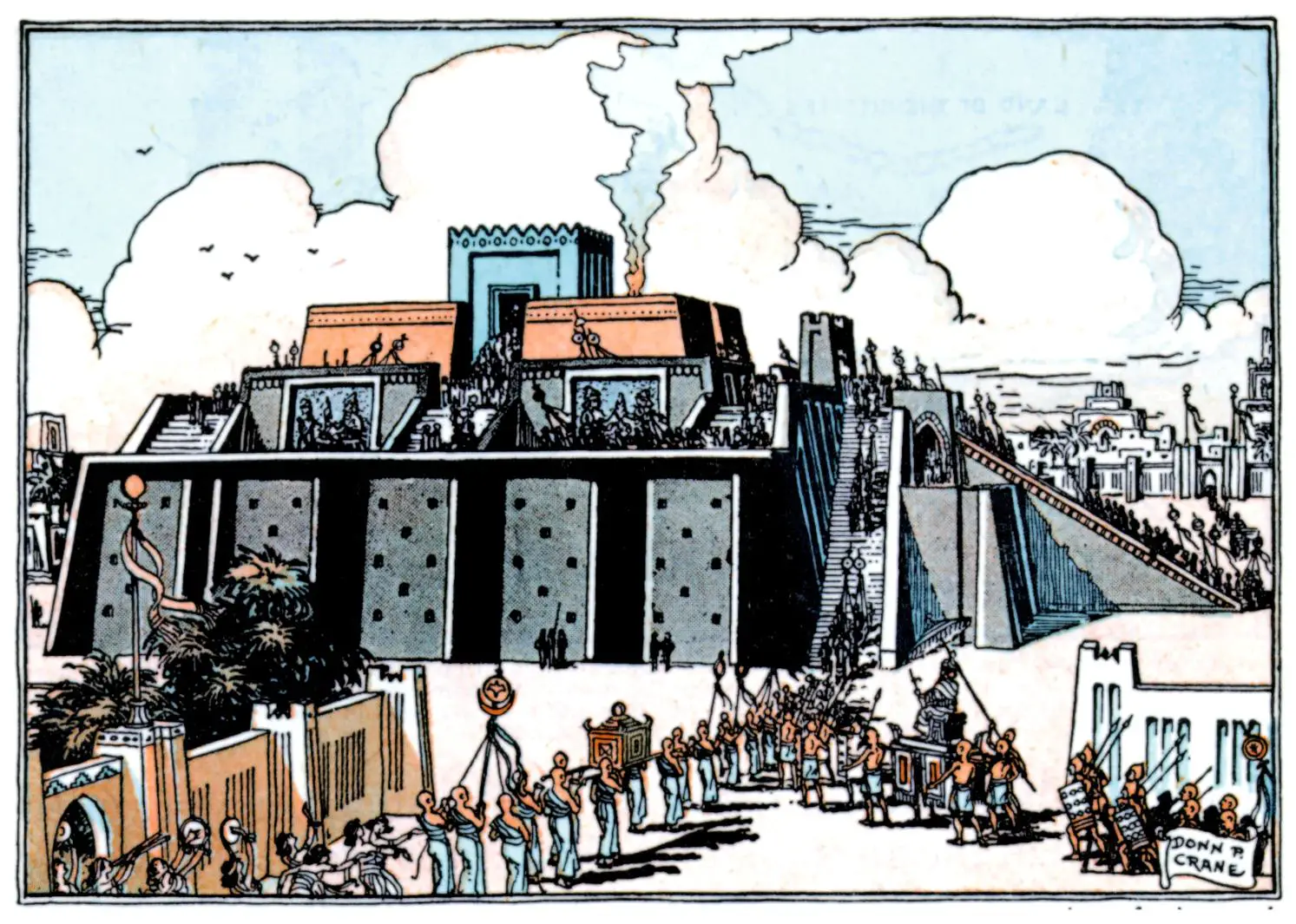Sumerians
Background
By around 4000 BC, the most important part of ancient Mesopotamia was a land to the south called the Sumer. The people of this land lived in city-states and were known as the Sumerians. They created one of humanity’s most remarkable early civilisations.


City-states
- In the centre of all Sumerian cities there were places of worship called ziggurats. People would come to worship a local god at these temples.
- The kings of these cities would live in grand palaces while ordinary people, most of whom were farmers, lived in small mud huts crammed together.
- There were often battles between the cities and so they were surrounded by very strong and tall walls to keep the enemy away.
- Some of the most important city-states were Eridu, Ur, Uruk and Nippur. They all grew in size over hundreds of years.

Government, rulers and trade
- While all these city-states formed a distinct group of Sumerian people, they were not united by a central government. Each city-state ran itself and they all competed with one another for power and influence.
- The Kings emerged as the dominant rulers of these city-states and they also saw themselves as religious leaders. The Sumerian word for king is ‘lugal’ which means ‘great man’.
- Nonetheless, the priests are also thought to have held much influence and power in Sumerian cities.
- Sumerian cities had developed government administration, and systems of taxation were in place. They established laws for their people to follow.
- The growth of the Sumerian city-states was also based on trade. The Sumerians traded in pottery, textiles, as well as agricultural products.

Society
- As in modern societies, the Sumerian people were divided into different classes. Kings, priests and nobles were at the top of society and enjoyed a relatively good life compared to those lower down the scale.
- There was no middle class as we would understand the term, but there were highly skilled people, such as traders, scribes and artisans.
- The lower class was predominantly made up of farmers who worked on the land. There were also slaves in Sumerian city-states.

Religion
- Religious life was at the heart of every Sumerian city-state. The Sumerians believed that it was possible to believe in and worship many different gods. They saw the gods as all-powerful and responsible for everything that happened.
- So the Sumerians thought that it was very important to keep the gods happy. If they did so, they believed that good things would happen. There would be plenty of food, there would be no disasters, such as earthquakes or storms, and the gods would inspire people to be creative and inventive.
- When disasters, such as floods, did happen the Sumerians were convinced that they must have done something to upset the gods and were being punished for their actions.

Inventions and technology
- The Sumerians created many of the key foundations of western civilisation. They devised early forms of writing on clay tablets and understood many of the basic concepts of astronomy and mathematics.
- They built homes, palaces and places of worship out of sun-dried mud bricks and created transport in the form of chariots and carriages, based on their discovery of the wheel. Other practical achievements included redirecting water movement to help crops grow, making pottery, doing metalwork and producing textiles.

Education
- The Sumerians were very practical people and they realised the importance of education so that skills and ideas could be passed on to the young.
- At first, the priests of the local temple were given the task of providing education. In time though it was recognised that the priests were not knowledgeable enough to ensure that the education was of the right standard so they lost control of this function.
- Schools were established where children learned how to read, write and do arithmetic. In the Sumerian spirit, this education was intended to foster the development of everyday skills that could be used to develop careers.

End of Sumerian power
The Sumerian city-state of Ur was overthrown by the so-called Amorites in around 2000 BC who gained power in ancient Mesopotamia until the rise of the Babylonians in around 1700 BC.



